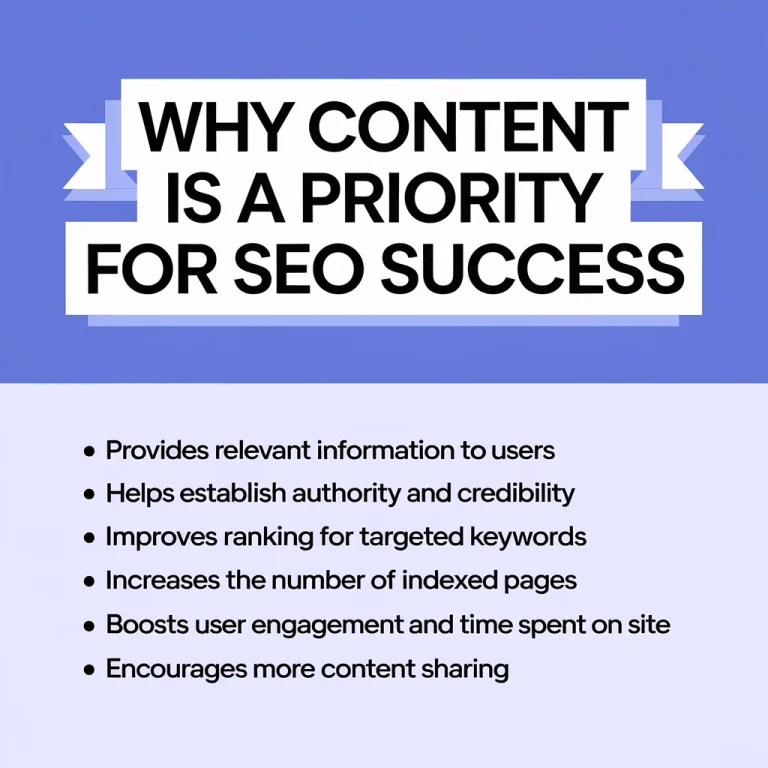Ethical Considerations in Digital Marketing

Managing the ethical and legal aspects of marketing is increasingly difficult because advances in technology continue to evolve online interactions. Marketers use personalised content to enhance user experiences, but there’s a fine line between customisation and intrusion. If companies overstep, they risk losing the trust they’ve worked hard to build.
As consumers become more aware of their privacy rights, concerns about the use of personal information are growing. In response, governments are calling for international collaboration to establish regulations that keep pace with these dynamic changes. The path forward lies in balancing ethical commitment, trust, and long-term success, which requires supporting regulations that promote innovation while safeguarding individual rights.
So, how can businesses and marketers ensure they prioritise user control, build trust, and stay on the right side of the law? Read this guide, in which FOR® elaborates on ethical considerations in digital marketing.
Privacy and Data Protection Regulations
Data protection laws protect the personal information of individuals against misuse and invasion of privacy. The laws set the rules on how organisations must collect, store, and process personal data for three important purposes: privacy, security, and transparency.
GDPR Compliance and Best Practices
The General Data Protection Regulation, one of the mainstays of privacy regulations devised to protect personal data about European Union citizens, was enacted in 2018 by the EU. It requires all organisations, irrespective of their location, to comply with the regulation if they have data concerning European Union residents’ requirements, compelling both legal and ethical responsibilities.
Key principles of GDPR include:
Lawfulness: The data is collected for explicitly defined purposes based on consent.
Purpose Limitation: Data shall be processed for specified, legitimate purposes.
Principle of Data Minimization: need to collect only the data required.
Accuracy: Ensure the information is up-to-date.
Storage Limitation: Delete data when no longer needed.
Integrity and secrecy: Protect data from unauthorised access.
The GDPR plays a keystone role in most organisations in the context of digital marketing and transformation. It ensures legal compliance while building customer trust in data-driven strategies. It helps drive success by emphasising data protection and transparency.
Secure Data Handling in Digital Marketing
Data plays an important role in marketing, but using them is a security concern. Here’s how you can protect your customers’ data and remain compliant with different regulations such as GDPR and CCPA:
Data Encryption: Encrypt data both in transit and at rest; access will require the encryption key.
Access Controls: Data should be accessible only to the persons who are authorised to access it.
Regular Auditing: Regular security audits are necessary for finding and patching vulnerabilities.
Staff Training: Training in best practices related to data security among staff.
Data Minimization: Only collect data that is necessary for the purposes of marketing.
Secure Storage: Utilize and configure secure storage.
Data Retention Policy: Establish and practice policies for deleting or anonymising data.
Incident Response Plan: Design a plan to deal with data breaches appropriately.
Vendor Management: Third-party vendors must be subjected to very strict standards in data security.
Consent and Transparency: Clearly inform them about the usage of data and give explicit consent.
Transparency and Trust in Digital Marketing
Instead, marketing has clearly changed in modern times. Enterprises and businesses have to be more transparently connected to their consumers. Changes in technology and values have created a shift from one-way communication to interactive communication.
Key challenges include information overload, reputation management, and privacy concerns. Transparency involves openly sharing product and company information; however, this information should be balanced to avoid overloading the consumer or losing the competitive advantage. When it comes to trust-building and loyalty, especially when consumers increasingly demand honesty and ethics, here is how you can build trust.
Continuous Branding: Ensure a unified message and identity flow right across multiple channels.
Transparent Communication: Communicate about the product, price, and policy in crystal clear detail.
Exceptional Customer Service: Apply a high level of service and support that exceeds expectations.
Social Responsibility: Undertake the use of ethical practices, including supporting relevant social causes.
Quality Products and Services: Offer reliable and quality products.
Customer Reviews: Show and encourage positive reactions from customers.
Data Privacy: Prioritize the protection of customer data.
Keeping Promises: Fulfill commitments and promises. Trust is an ongoing endeavour, and only by using these strategies can one remain competitively advantageous in today’s market with continued commitment.
Ethical Advertising and Disclosure Methods
Ethical advertising is all about heart honesty, transparency, and respect. Campaigns oozing with these qualities appeal to those consumers who appreciate truthfulness and accountability. Here are some of the examples of ethical advertising:
Dove’s Real Beauty Campaign dares to challenge the traditional concept of beauty by using various body types and diverse backgrounds, promoting self-acceptance.
Patagonia’s Don’t Buy This Jacket Campaign: This supports responsible consumption and a sense of environmental consciousness that is basically being put at the forefront of the brand’s ethics.
In turn, unethical practices, false claims or manipulation in areas like misleading tobacco advertisements and diet commercials harm trust and, thus, the industry’s reputation.
Here are the key disclosure techniques:
Clear Disclosures: Some advertisements should not be confusing but should be straightforward statements or labels
Disclaimer Statements: Explain particular details or limitations of a product.
Label Native Ads: Clearly label native ads as “sponsored” or “promoted”, indicating that they are different from editorial content.
Disclosure of Endorsements: Disclose any material relationships between endorsers and a brand.
Privacy Disclosures: Inform consumers that their data is collected and used for targeted advertisements. Ethical advertising based on effective disclosure techniques provides a trustworthy and equitable marketplace.
Consent-Based Marketing
One of the important ethical issues in this digital era is privacy. Consent-based marketing empowers consumers when brands use consumer terms to interact with them. When brands acquire explicit permission to use personal data for marketing purposes, they respect individual privacy.
The idea behind this approach is to address data privacy and cybersecurity issues and ascertain and show how a brand is committed to responsible handling of user data.
Inclusivity and Relationship Building
Inclusivity is so much more than the word of the day; it’s a core ethos in ethical marketing. Content and campaigns showing a brand to have diverse audiences mean a commitment to equality and unity.
This is particularly in line with modern consumer thinking, with modern consumers wanting their brands to mirror their values. As societies become increasingly diverse and ever more interdependent, the tendency to be more inclusive is not only about echoing the changing face of equality and acceptance but also about being representative of it. For Gen Z and millennials, who are certainly tuned in to these issues, brands that show a proactive commitment to being inclusive in meaningful ways are bound to draw more interest.
Building Relationships Through Engagement
In the present digital era, engagement is more than just numbers; it’s a key route to a relationship that truly means something. A brand opens a conversation with its audience, creating an atmosphere of trust and respect.
Gen Z and millennials, native to digital communication, appreciate those brands that can converse with them authentically by considering their thoughts and empathy. Through symmetric dialogue, brands will be able to answer questions, listen to their concerns, and address any feedback they receive much better toward reinforcing relationships afforded by authenticity and openness.
How to Avoid Deceptive Practices in Digital Marketing?
Ethical marketing is based on honesty, transparency, and respect for consumers. This includes refraining from all the pitfalls of misleading and deceptive marketing: supplying accurate information, protecting privacy, transparency in fees, avoiding fake reviews, and correct visual representations.
Such ethical practices in the industry include Starbucks’ commitment to sourcing coffee beans ethically and supporting fair trade. Transparency allows Starbucks to be open about its sourcing means, promoting better ethical and sustainable coffee production. On the other hand, Airbnb adopts transparency in pricing by showing the total cost, including fees, upfront to the user to avoid hidden surprises.
On the other hand, some of the unethical practices which hurt consumer trust and a brand are:
False Claims: Knowing fraud or making false claims about a particular product’s benefit or capability
Bait and switch: Advertising a commodity at a very low price, then insisting on trying to sell a higher-priced item.
Hidden Fees: Hiding extra charges that have an appearance only when one is about to check out
Counterfeit Reviews: Posting fake reviews to hoodwink consumers
Misleading Visuals: Using images that do not definitively represent the actual product.
Trust through value is not only ethical but also a key component in keeping a brand’s reputation positive over time.
Conclusion
In the journey of ethical and legal dimensions of digital marketing, a balanced approach is needed wherein user well-being and transparency take priority. Innovation is fostered with the protection of individual rights moving hand in hand within the fast-evolving digital scenario, provided good interaction is made between digital marketers, businesses, and policymakers.
By embracing ethical practices and moving towards what the consumer expects, we ensure that digital marketing will thrive in the future without harming people and online communities. Ethics will guarantee that businesses grow through digital marketing and help society at the same time. For personalised advice on integrating ethical considerations into your digital marketing strategy, contact Toni Hukkanen, the head of FOR® Branding and Marketing Agency, to arrange a complimentary consultation.




